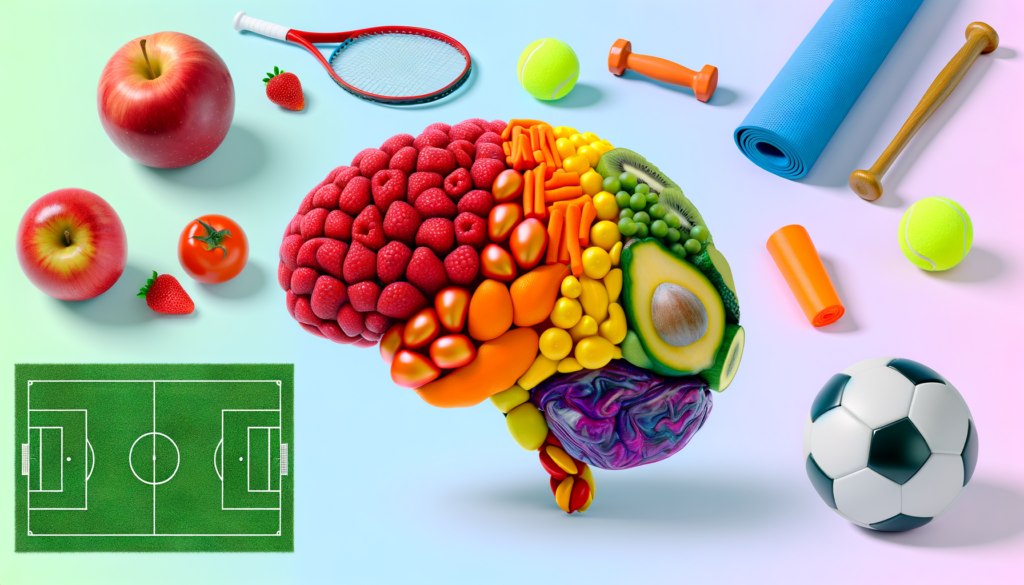Understanding the Crucial Link Between Calorie Balance and Fertility
When it comes to fertility and reproductive health, the role of nutrition cannot be overstated. One of the key aspects of a fertility-enhancing diet is maintaining a balanced calorie intake. Here, we delve into the details of how calorie balance impacts fertility and overall reproductive health.
The Impact of Calorie Balance on Hormonal Health
Hormonal balance is essential for reproductive health, and calorie intake plays a significant role in maintaining this balance. A diet that is either too high or too low in calories can disrupt hormonal functions, which are critical for ovulation and sperm production.
For women, a balanced calorie intake helps regulate hormones such as estrogen and progesterone. These hormones are vital for ovulation and the preparation of the uterus for a potential pregnancy. An imbalance, often caused by extreme calorie restriction or excess, can lead to ovulatory disorders and menstrual irregularities.
Similarly, for men, a healthy calorie balance supports the production of testosterone, which is essential for sperm production and overall reproductive health. Being significantly underweight or overweight can lead to hormonal imbalances that affect sperm quality and quantity.
The Role of BMI in Fertility
Body Mass Index (BMI) is a critical factor in fertility. Maintaining a BMI within the healthy range of 18.5 to 24.9 is crucial for both men and women.
For women, being overweight or obese can lead to hormonal imbalances, ovulatory disorders, and increased risks of pregnancy complications such as gestational diabetes and hypertension. Even a small weight loss can significantly improve fertility and pregnancy health.
On the other hand, being underweight can also negatively impact fertility by causing hormone imbalances that affect ovulation. Women who are underweight may take longer to conceive and may benefit from a dietitian’s guidance to gain weight healthily.
Dietary Patterns and Fertility
Certain dietary patterns have been shown to positively impact fertility.
The Mediterranean diet, which emphasizes fruits, vegetables, whole grains, nuts, and healthy fats like olive oil, has been linked to better fertility outcomes. This diet provides essential nutrients, antioxidants, and healthy fats that support reproductive health. For example, omega-3 fatty acids found in fish and nuts can improve blood flow to the reproductive organs and regulate hormones.
A plant-based diet, rich in fruits, vegetables, legumes, and whole grains, is also beneficial. This diet is high in antioxidants and vitamins that protect cells from damage and promote hormonal balance. Reducing red meat consumption and increasing plant-based foods can improve reproductive outcomes for both men and women.
Weight Management Strategies for Fertility
Achieving and maintaining a healthy weight is crucial for reproductive health. Here are some strategies to help manage weight effectively:
Eating a balanced diet with portion control is key. Foods rich in whole grains, fruits, and vegetables provide necessary nutrients while keeping calorie intake in check. Tracking food intake through a food diary can help identify patterns that may lead to weight gain or loss.
Regular physical activity is also essential. Exercise not only helps in maintaining a healthy weight but also improves overall health and fertility. For men, regular physical activity can improve sperm quality and quantity.
Nutritional Deficits and Their Consequences
Nutritional deficits can significantly impact fertility. Here are some key nutrients and their importance:
Iron is crucial for preventing ovulatory infertility and anemia, especially in women with heavy menstrual bleeding. Sources include red meat, poultry, lentils, and fortified cereals.
Folic acid is essential for DNA synthesis and cell division. A deficiency can lead to neural tube issues and increased ovulatory infertility. Good sources include leafy green vegetables, fruits, nuts, beans, and fortified breads and cereals.
Omega-3 fatty acids support hormone health and improve blood flow to the reproductive organs. Foods like flaxseeds, walnuts, salmon, and mackerel are rich in these fatty acids.
Real-World Examples and Case Studies
Several studies and case studies highlight the importance of calorie balance and nutrition in fertility.
A study published in the journal Fertility and Sterility found that women who consumed a diet rich in fruits, vegetables, whole grains, and healthy fats had higher conception rates. This diet provided essential vitamins and minerals that supported reproductive health.
Another study by Harvard University revealed that a balanced diet can reduce the risk of ovulatory infertility. Women who followed a model nutrition plan, including high amounts of antioxidants, had better reproductive outcomes.
Conclusion and Next Steps
The link between calorie balance, nutrition, and fertility is clear. Maintaining a healthy weight through a balanced diet and regular physical activity is essential for reproductive health.
If you are trying to conceive, it is important to focus on a nutrient-rich diet that includes a variety of foods such as fruits, vegetables, whole grains, lean proteins, and healthy fats. Avoid extreme calorie restriction or excess, and consider consulting a dietitian or healthcare provider for personalized advice.
For more detailed guidance on nutrition and fertility, you can use tools like the Calorie Calculator Cloud to help you plan and track your diet effectively. Additionally, exploring Calorie Calculator Plans can provide you with tailored nutritional strategies to support your fertility journey.
By making informed dietary choices and maintaining a healthy weight, you can significantly improve your chances of conceiving and having a healthy pregnancy. Remember, a balanced diet is just one part of a broader approach to reproductive health that includes regular physical activity and overall lifestyle modifications.








